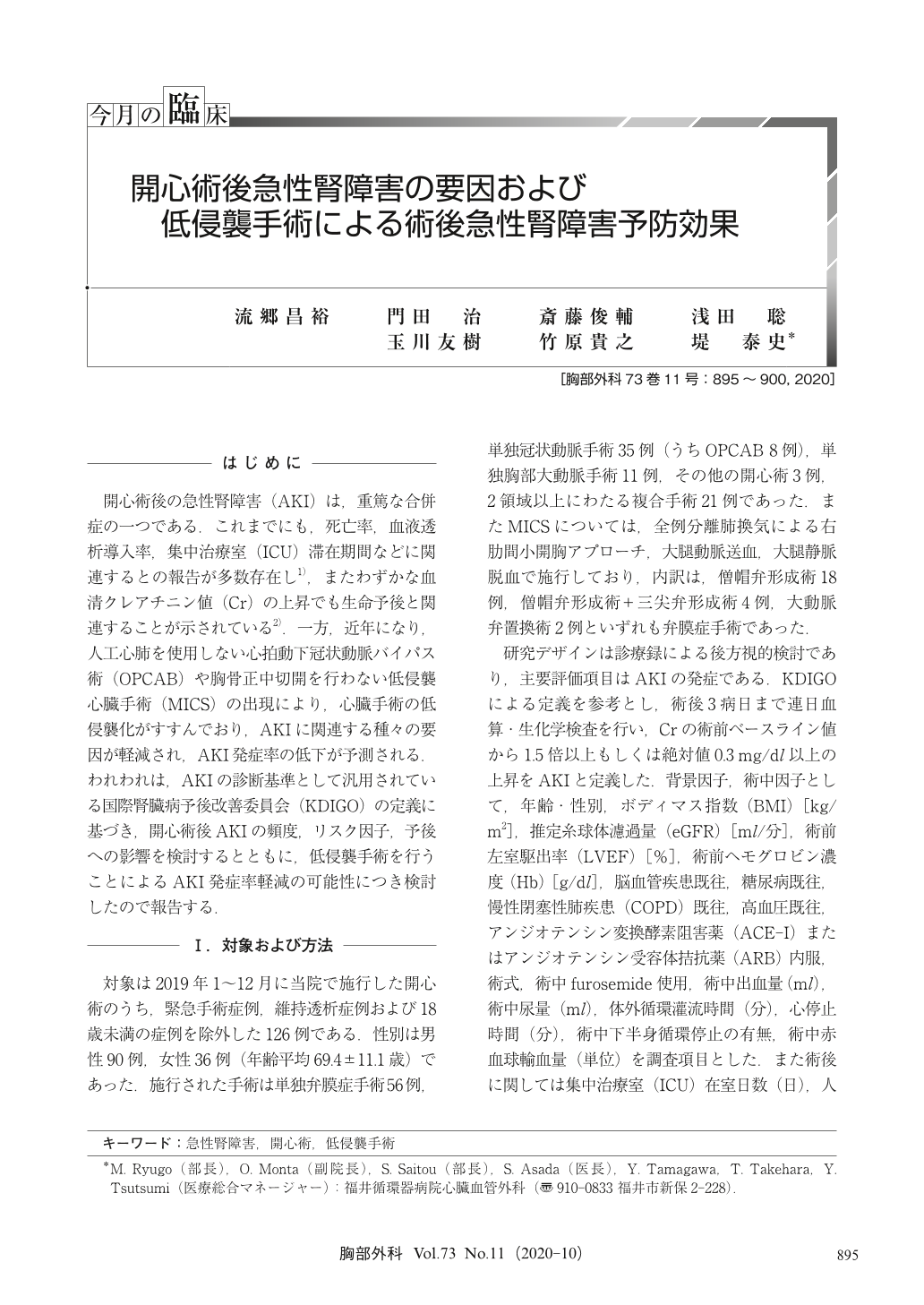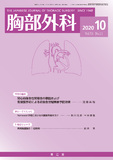Japanese
English
- 有料閲覧
- Abstract 文献概要
- 1ページ目 Look Inside
- 参考文献 Reference
開心術後の急性腎障害(AKI)は,重篤な合併症の一つである.これまでにも,死亡率,血液透析導入率,集中治療室(ICU)滞在期間などに関連するとの報告が多数存在し1),またわずかな血清クレアチニン値(Cr)の上昇でも生命予後と関連することが示されている2).一方,近年になり,人工心肺を使用しない心拍動下冠状動脈バイパス術(OPCAB)や胸骨正中切開を行わない低侵襲心臓手術(MICS)の出現により,心臓手術の低侵襲化がすすんでおり,AKIに関連する種々の要因が軽減され,AKI発症率の低下が予測される.われわれは,AKIの診断基準として汎用されている国際腎臓病予後改善委員会(KDIGO)の定義に基づき,開心術後AKIの頻度,リスク因子,予後への影響を検討するとともに,低侵襲手術を行うことによるAKI発症率軽減の可能性につき検討したので報告する.
Objective:We aimed to determine the incidence and risk of acute kidney injury (AKI) in patients after cardiac surgery, and to assess the effects of less invasive cardiac surgery on the prevention of postoperative AKI.
Methods:We retrospectively analyzed perioperative parameters in patients who underwent cardiac surgery. Risk factors for AKI were determined using univariate and multiple logistic regression models. The incidence of postoperative AKI was also compared between conventional and minimally invasive cardiac surgeries.
Results:Among 126 patients, 36 (28.6%) who developed postoperative AKI stayed significantly longer in the intensive care unit (ICU), required prolonged postoperative ventilation and had a higher frequency of renal replacement therapy. Multivariate analysis revealed cardio-pulmonary bypass (CPB) duration and red blood cell transfusion as independent risk factors for postoperative AKI. The incidence of postoperative AKI was significantly lower after off-pump coronary artery bypass grafting than conventional coronary artery bypass grafting (CABG)(0% versus 11%, p=0.025), and after minimally invasive cardiac surgery compared with conventional valve surgery (4% versus 44%, p=0.01)
Conclusion:The duration of CPB and red blood cell transfusion were considered independent factors for the development of postoperative AKI. Less invasive cardiac surgeries might protect against postoperative AKI.

© Nankodo Co., Ltd., 2020


